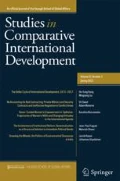Abstract
Over the years, Taiwan has experienced “brain drain”, as more than 80 percent of its students who completed their graduate study in the United States have failed to return. Instead, they have found their ways into the faculties of American colleges and universities or employment opportunities in various research organizations and industries.
This article examines brain drain, its origin in Taiwan, and government response. One of the major findings of this study is that the elite emigration in Taiwan has been caused by a host of complex academic, social, economic, and personal factors.
Second, Taiwan’s brain drain into the United States is primarily a case of “education and migration.” It is an outflow of college graduates, not an exodus of trained scientists and engineers; therefore, Taiwan’s manpower loss in the short run is not as serious as the case where mature and experienced scientists and professionals leave. Furthermore, whereas a large number of college graduates leave each year to study abroad, a much larger number of the graduating class does remain in Taiwan.
To reverse Taiwan’s brain drain, the government of the Republic of China (ROC) has already implemented an ambitious program to recruit Taiwan’s highly trained talents from overseas. Taiwan’s successful experience could be emulated by other developing countries.
Similar content being viewed by others
References
KAO, CHARLES 1971Brain drain: A case study of China. Taipei: Mei Ya Publications.
LIAO, CHI-CHING aND MING-YYUEH TANG 1984Research and analysis on the employment of the returned scholars and students. October. Taipei: National Youth Commission, Executive Yuan.
NATIONAL YOUTH COMMISSION, Executive Yuan 1987 A helping hand to overseas scholars for their service at home. Taipei; National Youth Commission. (In-house Publication, n.p.).
NILAND, JOHN R. 1970 The Asian engineering brain drain. Lexington, MA: D.C. Heath and Co.
UNITED NATIONS, GENERAL ASSEMBLY 1968Outflow of trained personnel from developing countries. Report of the Secretary General. November 5. New York: United Nations.
U.S. HOUSE OF REPRESENTATIVES, RESEARCH AND TECHNICAL PROGRAM SUBCOMMITTEE OF THE COMMITTEE ON GOVERMNET OPERATIONS, STAFF STUDY, 1967The Brain Drain Into the United States of Scientists, Engineers, and Physicians, 90th Congress, 1st Session.
WEI, YUNG 1974 Socio-psychological variables and inter-nation intellectual migration. Findings from interviewing returnees in the Republic of China, Pittsburgh, PA: International Studies Association (Comparative Interdisciplinary Studies Section) Working paper 15. December.
YAO, SHUN 1981A study on the Chinese student abroad, 1960–1979, Taipei, National Youth Commission, Executive Yuan.
Additional information
Shirley L. Chang received her B.A. in Foreign Languages and Literature from National Taiwan University, Master of Library Science from Columbia University, and M.A. in Higher Education from The Pennsylvania State University. She is Chairman of the Department of Library Services and Catalog/Reference Librarian at Stevenson Library, Lock Haven University, Lock Haven, PA 17745.
Rights and permissions
About this article
Cite this article
Chang, S.L. Causes of brain drain and solutions: The Taiwan experience. Studies in Comparative International Development 27, 27–43 (1992). https://doi.org/10.1007/BF02687103
Issue Date:
DOI: https://doi.org/10.1007/BF02687103




